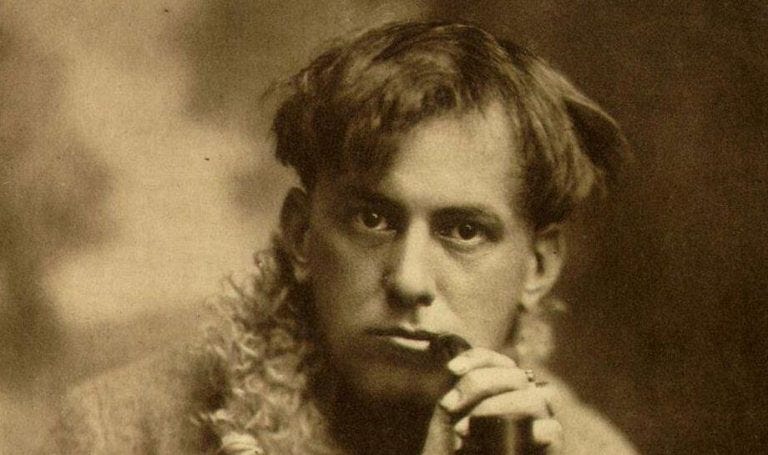The Culinary Crowley
Much has been written about the Victorian mage, Aleister Crowley. Volumes exist that analyze his rituals, track his movements, and debate his writings. Crowley was born in 1875, entering adulthood during the end of the Victorian era. He flourished during the reign of Edward VII, and remained undeterred in his spiritual quests and travels until his death in 1945. Crowley was derided by critics as “The Great Beast 666” and “The Wickedest Man in History,” but his vast literary output and varied accomplishments in fields as diverse as chess, big game hunting, and mountaineering, coupled with a prodigious and well-earned reputation for debauchery and hedonism were legendary. A product of the British public school system, Crowley inherited a substantial fortune and had the freedom to live the life of a gentleman of leisure. Instead, he became an erudite bon vivant, and took part in the first summit attempts on both Chogo-Ri (K2) and Kanchenjunga. He published his first book of poetry at the age of 23, and voluminous tomes in many genres soon followed: essays, plays, novels, and – most notably – his far-reaching studies of “magick.”
His diaries are suffused with references and information on his worldwide travels, the hotels and spas where he resided, the restaurants in which he dined, and his eclectic cast of illustrious dining companions, such as W. Somerset Maugham, William Butler Yeats, August Rodin, and Aldous Huxley. Fascinating passages detail the provisions requirements for his expeditions, such as his K2 climb which necessitated cases of Champagne and lashings of tinned Danish butter. Describing an October 1930 dinner at the Muenchner Hofbrau in Leipzig with Huxley and a colleague of Albert Einstein’s, J.W.N. Sullivan, Crowley drily observed that Sullivan “was gloomy drunk on iced beer, & sick after a vast goulash, & more iced beer. Huxley improves on acquaintance." Recounting a gastronomic preparation for a ritual, Crowley explained he consumed a “heavy lunch (sign for Moon), several aperitifs, burgundy, & old brandy [and] one small absinthe.”
As a man of gargantuan appetites, Crowley has inspired modern New Age practitioners and occultists with many of his rituals and practices that are still in use. Tens of thousands of adherents to this day, study his philosophy of Thelema (Greek = Will) through the dozens of books which have remained in print for more than a hundred years. Crowley’s unique and fascinating life, whose rituals and excesses were frequently intertwined with the consumption of food and drink – from the gourmet to the peasant – present not only a beguiling story of mysticism and epicurean decadence, but a jumping-off point for questions of the role of ritual in eating, community, and the life of the spirit.
His life-long diaries, both published and unpublished, extensively reference his ritualistic employment and consumption of food and provide a running commentary of meals he both enjoyed and disparaged during his extraordinary life and esoteric explorations. It is no exaggeration to state that Crowley’s life revolved around ritual; much of which he created, and in which food played an important aspect. This is an investigation into the man, the magick, and his meals.


This looks fun - looking forward to the culinary journey